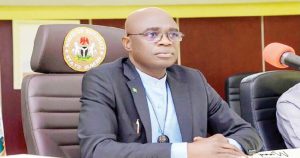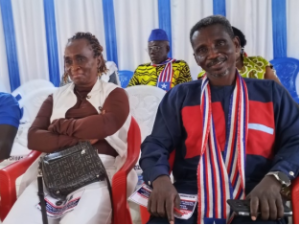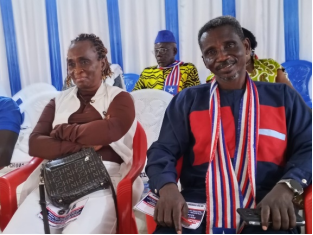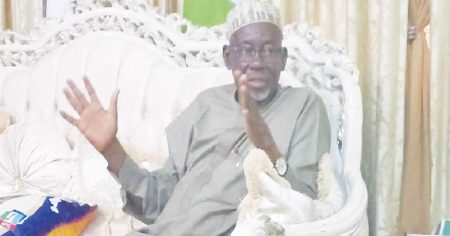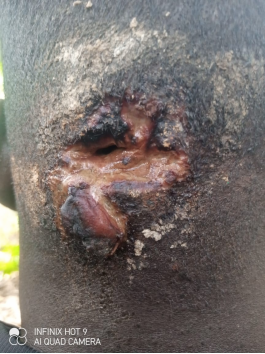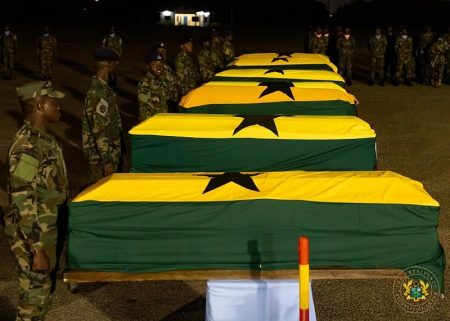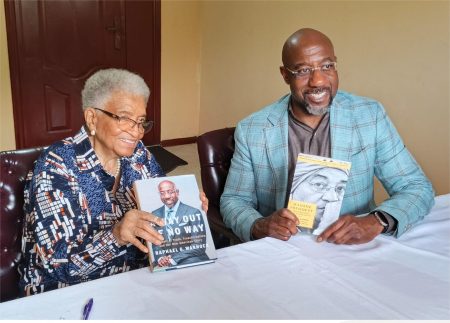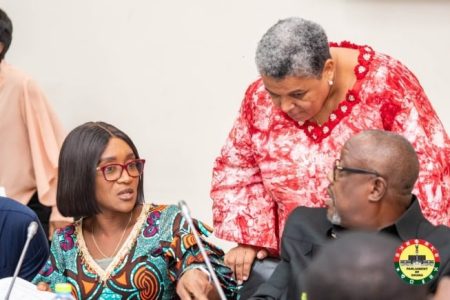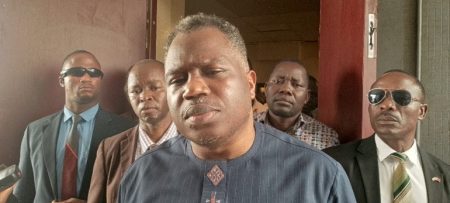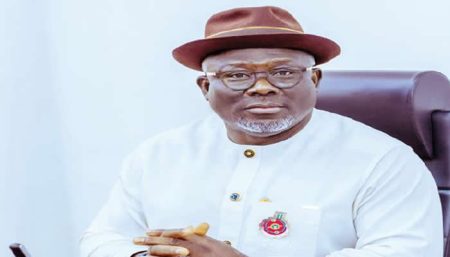The violent disruption of the Ablekuma North parliamentary rerun election on July 11, 2024, has ignited a firestorm of condemnation, with former Vice President Dr. Mahamudu Bawumia leading the charge against the ruling NDC government and President John Dramani Mahama. The incident, which saw unidentified thugs storm a polling station, physically assaulting NPP parliamentary candidate Nana Akua Owusu Afriyie and former Fisheries Minister Mavis Hawa Koomson, has been labeled an “affront to democracy” by Dr. Bawumia. He has issued a stern call for immediate action against the perpetrators, emphasizing the availability of video evidence capturing their actions. This incident throws into sharp relief the fragility of Ghana’s democratic processes and underscores the urgent need for decisive action to ensure accountability and deter future violence.
The attack, occurring at St. Peter’s Polling Station, effectively halted the voting process and instilled fear among voters and electoral officials. Despite the presence of security personnel, the assailants managed to escape apprehension at the scene, raising questions about the effectiveness of security measures. Dr. Bawumia’s pointed demand for justice highlights the gravity of the situation and places significant pressure on President Mahama and his administration to demonstrate their commitment to upholding the rule of law. The former Vice President’s strong words, coupled with the visual evidence of the assault, have created a sense of urgency and heightened expectations for swift and decisive action.
The Ablekuma North constituency has been embroiled in political turmoil since the disputed December 7, 2024, general elections, resulting in the constituency remaining without a parliamentary representative. The rerun election on July 11 was ordered by the Electoral Commission in an attempt to resolve the ongoing impasse. However, the NPP leadership’s decision to boycott the rerun added another layer of complexity to an already tense situation. Nana Akua Owusu Afriyie’s defiance of the party directive by contesting the election further exacerbated the political tensions, ultimately contributing to the volatile atmosphere that culminated in the violent attack.
Dr. Bawumia’s unwavering stance, promising that the perpetrators will be held accountable “no matter how long it takes,” reflects a deep concern about the potential erosion of democratic principles. He has made it clear that this incident will not be forgotten or swept under the rug, signaling a commitment to pursuing justice for the victims and safeguarding the integrity of Ghana’s electoral system. The incident has also drawn the attention of civil society groups and political analysts, who are echoing Dr. Bawumia’s call for swift action by the Ghana Police Service. The focus now rests squarely on the authorities to conduct a thorough investigation, identify the individuals responsible, and bring them to justice, thereby restoring public trust in the democratic process.
The events in Ablekuma North serve as a stark reminder of the challenges facing Ghana’s electoral system and the importance of maintaining peace and security during elections. The assault on a parliamentary candidate and a former government minister represents a dangerous escalation of political violence and underscores the need for strengthened security measures and proactive interventions to prevent similar incidents from occurring in the future. The incident also raises broader questions about the underlying political tensions that fueled the violence and the responsibility of political leaders to foster a climate of respect and tolerance.
Beyond the immediate need for justice, the Ablekuma North incident necessitates a broader conversation about the health of Ghana’s democracy. It is imperative to address the root causes of electoral violence, including political polarization, inflammatory rhetoric, and the instrumentalization of violence for political gain. Strengthening institutional mechanisms for conflict resolution, promoting inter-party dialogue, and empowering civil society organizations to monitor and report on electoral irregularities are crucial steps towards ensuring free, fair, and peaceful elections in Ghana. The incident should serve as a wake-up call for all stakeholders to recommit to the principles of democracy and work together to create a more inclusive and peaceful political environment.


